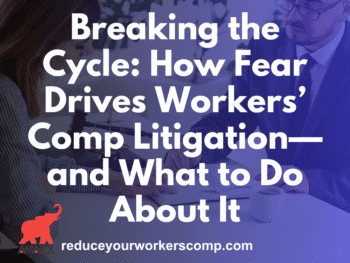$6.2 Million in Disability Lawsuit Settled or the EEOC Gets Their "Man" As noted many times in this blog, it more than just the monetary penalties (usually large) but the hidden costs of losing a discrimination lawsuit. See the italicized areas pointing to what the employer did not do and what actions they are now FORCED to take, plus pay the money. A record-setting consent decree resolving a class lawsuit against a major retailer under the Americans With Disabilities Act (ADA) for $6.2 million and significant remedial relief is announced by the U.S. Equal Employment Opportunity Commission (EEOC). The consent decree represents the largest ADA settlement in a single lawsuit in EEOC history. The EEOC's suit alleged the retailer maintained an inflexible workers' compensation leave exhaustion policy and terminated employees instead of providing them with reasonable accommodations for their disabilities, as ADA violation. "The facts of this case showed that, nearly twenty years after the enactment of the ADA, the rights of individuals with disabilities are still in jeopardy," said Commission Acting Chairman Stuart Ishimaru. "At the same time, this record settlement sends the strongest possible message that the EEOC will use its enforcement authority boldly to protect those rights and advance equal employment opportunities for individuals with disabilities." EEOC Chicago District Director John Rowe, who supervised the agency's administrative investigation preceding the lawsuit, said the case arose from a charge of discrimination filed with the EEOC by a former service technician of the employer. According to Rowe, the individual was injured on the job, took workers' comp leave, and, although remaining disabled by the injuries, repeatedly attempted to return to work. The retailer, Rowe said, "Could never see its way clear to provide the individual with a reasonable accommodation which would have put him back to work and, instead, fired him when his leave expired." It was revealed in pre-trial discovery that hundreds of other employees on workers' comp leave were also reportedly terminated by the retailer without seriously considering reasonable accommodations to return them to work while they were on leave, or seriously considering whether a brief extension of their leave would make their return possible. The era of employers being able to inflexibly and universally apply a leave limits policy without seriously considering the reasonable accommodation requirements of the ADA are over investigators said. Just as it is a truism that never having to come to work is manifestly not a reasonable accommodation, it is also true that inflexible leave policies which ignore reasonable accommodations making it possible to get employees back on the job cannot survive under federal law. Today's consent decree is a bright line marker of that reality. In addition to providing monetary relief, the three-year consent decree includes an injunction against violation of the ADA and retaliation. It requires the retailer will amend its workers' comp leave policy, provide written reports to the EEOC detailing its workers' compensation practices' compliance with the ADA, train its employees regarding the ADA, and post a notice of the decree at all Retailer locations. (workersxzcompxzkit) According to Greg Gochanour, EEOC supervisory trial attorney in Chicago, "This is not merely a garden variety so-called 'cost of litigation' settlement. We discovered well over a hundred former employees who wanted to return to work with an accommodation, but were terminated by the retailer – and some of them found it out when their discount cards were rejected while shopping the employer's store. We believe the retailer's decision to accept this decree makes good sense."
Author Robert Elliott, executive vice president, Amaxx Risks Solutions, Inc. has worked successfully for 20 years with many industries to reduce Workers' Compensation costs, including airlines, health care, manufacturing, printing/publishing, pharmaceuticals, retail, hospitality and manufacturing. He can be contacted at: Robert_Elliott@ReduceYourWorkersComp.com or 860-786-8286.
We are accepting articles about this case. Contact us at: Info@WorkersCompKit.com. *Non-compensable.
Do not use this information without independent verification. All state laws vary. You should consult with your insurance broker or agent about workman's comp issues.



























